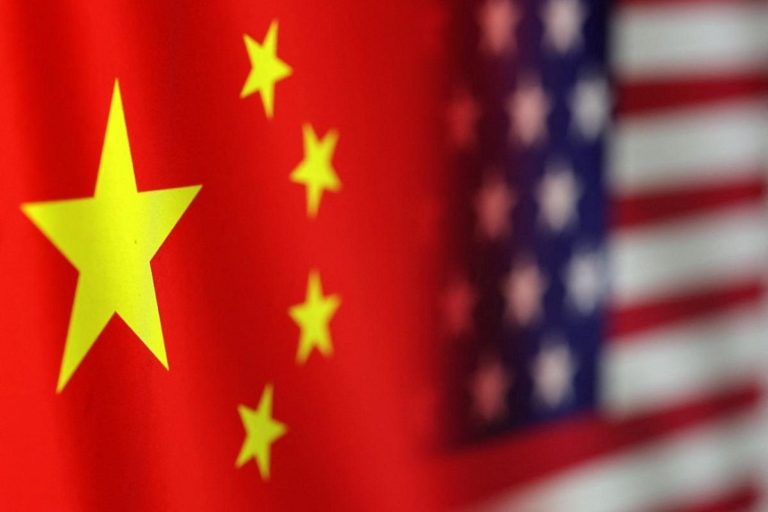
Similar Posts

We spend so much of our lives online but have we thought about what will happen to our digital trails and assets when we die?
It is a question that came up for husband-and-wife content creators Muhammad Alif Ramli and Liyana Syahirah Ismail Johari.
 Content creators Liyana Syahirah Ismail Johari and Muhammad Alif Ramli documented their journey in seeking help to manage digital assets.
Content creators Liyana Syahirah Ismail Johari and Muhammad Alif Ramli documented their journey in seeking help to manage digital assets.
They realise, for example, if no clear instructions are left behind, not knowing the passwords or about dormant accounts on long-forgotten platforms can pose problems.
It is especially important, given Mr Alif’s medical history.
When Mr Alif was 10, he was diagnosed with rhabdomyosarcoma, a soft tissue cancer. He underwent multiple chemotherapy cycles and nine surgical operations, which the 28-year-old described as a “close-to-death experience”, before he recovered.
In the fourth episode of The Straits Times’ docuseries Let’s Talk About Death, Mr Alif and Ms Liyana, 27, seek help from experts to consolidate their digital assets.
They speak to a cyber security expert to find out how to best manage their passwords. They also talk to a lawyer who specialises in digital assets to look into protecting their social media accounts, which may generate revenue in the future.
Finally, Mr Alif and Ms Liyana also attempt to write their wills with the help of artificial intelligence tools, with the key question being: Will they be valid under syariah law?
Let’s Talk About Death is a five-episode docuseries that follows several millennials and their loved ones as they navigate end-of-life planning, and it starts honest conversations about death and dying well.

WASHINGTON – A sophisticated breach of US telecommunications systems has extended to the presidential campaigns, raising questions about the group behind the attack and the extent of its efforts at collecting intelligence.
It was unclear what data was taken in the attack. The far-reaching operation has been linked to the Chinese government and attributed to a group experts call Salt Typhoon.
Investigators believe hackers took aim at a host of well-connected Americans, including the presidential candidates – reflecting the scope and potential severity of the hack.
Here’s what to know.
What is Salt Typhoon?
Salt Typhoon is the name Microsoft cybersecurity experts have given to a Chinese group suspected of using sophisticated techniques to hack into major systems – most recently, US telecommunication companies.
The moniker is based on Microsoft’s practice of naming hacking groups after types of weather – “typhoon” for hackers based in China, “sandstorm” for efforts by Iran and “blizzard” for operations mounted by Russia. A second term, in this case “salt,” is used to denote the type of hacking.
Experts say Salt Typhoon seems to be focused primarily on counterintelligence targets, unlike other hacking groups that may try to steal corporate data, money or other secrets.
What do US officials think Salt Typhoon has done?
National security officials have gathered evidence indicating the hackers were able to infiltrate major telecom companies, including but not limited to Verizon.
The New York Times reported on Oct 25 that among the phones targeted were devices used by former President Donald Trump and his running mate, Senator JD Vance of Ohio. The effort is believed to be part of a wide-ranging intelligence-collection effort that also took aim at Democrats, including staff members of both Vice President Kamala Harris’ campaign and Senator Chuck Schumer of New York, the majority leader.
How serious is this hacking?
National security officials are still scrambling to understand the severity of the breach, but they are greatly concerned if, as it appears, hackers linked to Chinese intelligence were able to access US cellphone and data networks. Such information can provide a wealth of useful intelligence to a foreign adversary like China.
To some degree, the breach represents a continuation of data collection on the types of targets that spies have been gathering for decades. In this instance, however, the sheer quantity and quality of the information Salt Typhoon may have gained access to could put the intrusion into its own category, and suggests that US data networks are more vulnerable than officials realised.
What did the hackers get?
At this stage, that is still unclear. One major concern among government officials is whether the group was able to observe any court-ordered investigative work, such as Foreign Intelligence Surveillance Act collection – a highly secretive part of American efforts to root out spies and terrorists.
No one has suggested yet that the hackers were able to essentially operate inside individual targets’ phones. The more immediate concern would be if they were able to see who was in contact with candidates and elected officials, and how often they spoke and for how long. That kind of information could help any intelligence agency understand who is close to senior decision-makers in the government.
People familiar with the investigation say it is not yet known if the hackers were able to gain access to that kind of information; investigators are reasonably confident that the perpetrators were focused on specific phone numbers associated with presidential campaigns, senior government leaders, their staff members and others.
Like the weather, hacking is never really over, and the Salt Typhoon breach may not be over either. It is also possible that the United States may never learn precisely what the hackers got. NYTIMES

HELSINKI/STOCKHOLM – The Finnish and German governments on Monday said an investigation was under way of a severed fibre optic communications cable running on the Baltic seabed and linking the two countries, and they cited concerns about the security of critical infrastructure.
The 1,200 km (745 miles) fibre optic cable running through the Baltic Sea from Helsinki, Finland’s capital, to the German port of Rostock may have been severed by an outside force, Finnish state-controlled cyber security and telecoms network company Cinia said.
The C-Lion1 cable malfunctioned just after 0200 GMT, the company said.
The Finnish and German foreign ministries said in a joint statement that they were “deeply concerned” by the severed cable and that a thorough investigation was underway.
“Our European security is not only under threat from Russia’s war of aggression against Ukraine, but also from hybrid warfare by malicious actors,” they said. “Safeguarding our shared critical infrastructure is vital to our security and the resilience of our societies.”
The sudden outage implied that the cable was completely severed by an outside force, although a physical inspection has not yet been conducted, Cinia’s chief executive, Ari-Jussi Knaapila, told a press conference.
The damage occurred near the southern tip of Sweden’s Oland island and could typically take between five and 15 days to repair, he added.
Cinia said it was working with authorities to investigate the incident.
Swedish public service broadcaster SVT reported that Swedish authorities were also investigating damage to a communications cable running between Lithuania and Sweden, close to the one that was severed.
“It is absolutely central that it is clarified why we currently have two cables in the Baltic Sea that are not working,” Carl-Oskar Bohlin, minister of civil defence, told SVT.
The Swedish government did not immediately reply to Reuters’ request for comment.
Last year a subsea gas pipeline and several telecoms cables running along the bottom of the Baltic Sea were severely damaged in an incident raising alarm bells in the region.
Finnish police investigating the 2023 case have named a Chinese container ship believed to have dragged its anchor as a prime suspect, but have not said whether the damage was believed to be accidental or intentional.
In 2022 the Nord Stream gas pipelines linking Russia to Germany in the Baltic Sea were destroyed by explosions in a case that remains under investigation by German authorities. REUTERS

WASHINGTON – Members of former U.S. President Donald Trump’s family and officials from the Biden administration were among those targeted by China-linked hackers who were able to break into telecommunications company systems, the New York Times reported on Tuesday, citing people familiar with the matter.
The Times said State Department officials, Trump family members including Eric Trump and Jared Kushner, and prominent Democrats including Senate majority leader Chuck Schumer were among those targeted by the spies.
Concerns about the hacking group have grown since media reports disclosed its activities last month.
On Oct. 6, the Wall Street Journal reported that the group, nicknamed “Salt Typhoon”, had accessed the networks of broadband providers and obtained information from systems the federal government uses for court-authorized wiretapping.
The State Department, as well as aides for Trump family members, did not immediately respond to Reuters’ questions. The White House, the National Security Agency, and the cybersecurity watchdog agency CISA did not immediately return messages. A Schumer aide did not immediately reply to an email. The Chinese Embassy in Washington did not immediately respond to an email, although Beijing routinely denies being behind cyberespionage campaigns. REUTERS

WASHINGTON – China-linked hackers have intercepted surveillance data intended for American law enforcement agencies after breaking in to an unspecified number of telecom companies, US authorities said on Nov 13.
The hackers compromised the networks of “multiple telecommunications companies” and stole US customer call records and communications from “a limited number of individuals who are primarily involved in government or political activity”, according to a joint statement released by the Federal Bureau of Investigation (FBI) and the US cyber watchdog agency CISA.
The two agencies said the hackers also copied “certain information that was subject to US law enforcement requests pursuant to court orders”.
The statement gave few other details, and the Cybersecurity and Infrastructure Security Agency immediately responded to a request for comment.
The FBI declined to comment.
The announcement confirms the broad outlines of previous media reports, especially those in the Wall Street Journal, that Chinese hackers were feared to have opened a back door into the interception systems used by law enforcement to surveil Americans’ telecommunications.
That, combined with reports that Chinese hackers had targeted telephones belonging to then-presidential and vice-presidential candidates Donald Trump and J.D. Vance, along with other senior political figures, raised widespread concern over the security of America’s telecommunications infrastructure.
The matter is already slated for investigation by the Department of Homeland Security’s Cyber Safety Review Board, which was set up to analyse the causes and fallout of major digital security incidents.
The Chinese Embassy in Washington did not immediately return a message seeking comment. Beijing routinely denies US hacking allegations. REUTERS

SEOUL – Pro-Russia hacking groups have conducted cyberattacks against South Korea after North Korea dispatched troops to Russia to support its war against Ukraine, Seoul’s presidential office said on Friday.
The office held an emergency intra-agency meeting after detecting denial-of-service attacks on some government and private websites in recent days.
Some of the websites experienced temporary outages but there was no serious damage, it said, adding that the government will strengthen its ability to respond to such attacks.
“Cyber attacks by pro-Russian hacktivist groups on our country have occurred intermittently in the past, but have become more frequent since North Korea dispatched troops to Russia and participated in the Ukraine war,” the office said in a statement.
Seoul and Washington have said there are more than 10,000 North Korean soldiers in Russia, and U.S. officials and Ukraine’s defence minister said some of them have engaged in combat in Kursk, near the Ukraine border.
The new military cooperation between Pyongyang and Moscow has been condemned by South Korea, the United States and Western allies. Ukrainian President Volodymyr Zelenskiy said on Tuesday that the first battles between his country’s military and North Korean troops “open a new page in instability in the world.” REUTERS
